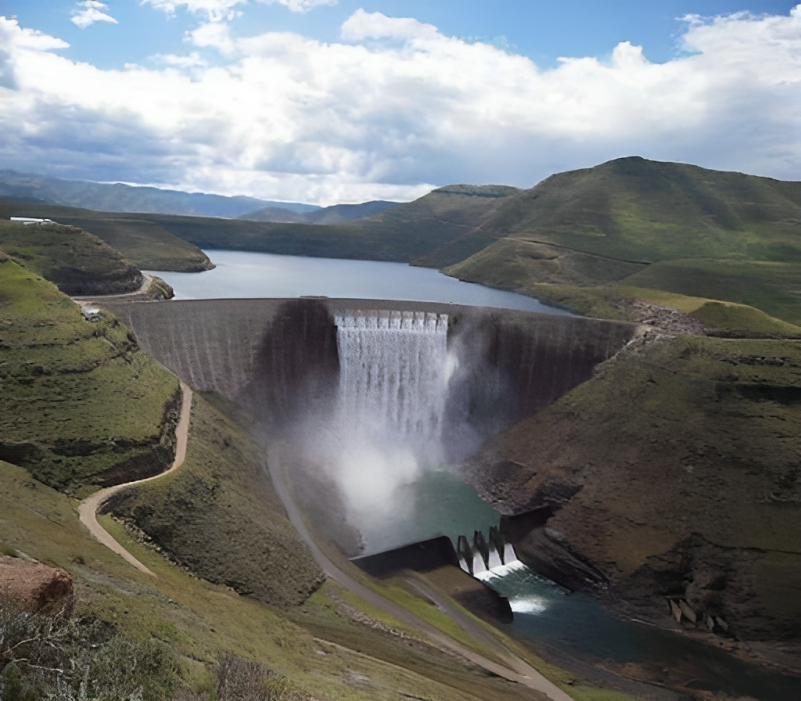Mozambique has taken a major step towards becoming a regional exporter of clean, renewable energy by signing an agreement with a consortium led by French power giant EDF to build the new $5 billion Mphanda Nkuwa hydropower project.
The dam and hydropower plant will be constructed along the Zambezi River in Tete province, north of Mozambique, and will generate 1,500 megawatts of power in the first phase, enough to supply about 10 million households.
The project is expected to create more than 10,000 direct and indirect jobs during the construction phase and contribute to the economic and social development of Mozambique and the region.
The agreement was signed on Wednesday in a ceremony attended by senior French and Mozambican government officials, including President Filipe Nyusi and French Foreign Minister Jean-Yves Le Drian.
“This is the first concrete step for Mozambique to capitalize on the immense hydropower potential of the Zambezi River and the country’s other energy resources,” Mozambique Energy Minister Carlos Zacarias said in a statement.
The new dam will provide low-cost electricity to the southern African country, which currently relies on imports from neighboring South Africa and its gas-fired power plants.
It will also help position Mozambique as a regional exporter of clean, renewable energy, as the country plans to sell surplus power to South Africa, Zimbabwe, Zambia, Malawi, and Botswana.
The dam will link Tete to the capital Maputo via a transmission line of around 1,300 km (800 miles).
The first turbine is expected to operate by 2031, officials said.
The Franco-Japanese consortium, which consists of EDF, TotalEnergies, and Sumitomo Corporation, will develop, build, and operate the Mphanda Nkuwa hydropower project.
The consortium is the majority shareholder, with a 70% stake in the venture, while Mozambique’s power utility EDM and Hidroeléctrica da Cahora Bassa (HCB) will take the remaining 30%.
The project has been in the pipeline for more than two decades but faced delays due to financing challenges, environmental concerns, and security issues.
Mozambique has been grappling with a violent insurgency in its northern Cabo Delgado province, where a $20 billion liquefied natural gas project led by TotalEnergies was forced to halt operations earlier this year.
The Mphanda Nkuwa project is located in a more stable area but still faces some risks from local communities and environmental groups, who have raised concerns about the impact of the dam on the river ecosystem, wildlife, and livelihoods.
The consortium and the government have pledged to adhere to the highest environmental and social standards and to conduct extensive consultations with the affected communities and stakeholders.
The project is also expected to benefit from the support of international financial institutions, such as the World Bank, the African Development Bank, and the French Development Agency, which have expressed interest in providing loans and guarantees.
The Mphanda Nkuwa project is part of Mozambique’s ambitious vision to become a major player in the global energy market, and to use its natural resources to foster inclusive and sustainable growth.
The project will also complement the country’s larger Cahora Bassa Dam, also located on the Zambezi River, which already supplies power to South Africa and other neighboring countries.
Mozambique has one of the lowest electrification rates in Africa, with only about 30% of its population having access to electricity, according to the World Bank.
The Mphanda Nkuwa project is expected to increase the country’s power generation capacity by more than 50% and reduce its greenhouse gas emissions by avoiding the use of fossil fuels.
The project is also seen as a strategic investment for the region, as it will enhance energy security, integration, and cooperation among the southern African countries, which face frequent power shortages and blackouts.
The project is also in line with the global efforts to combat climate change, and to achieve the United Nations Sustainable Development Goals, especially the goal of ensuring access to affordable, reliable, sustainable, and modern energy for all.
Source: Reuters



